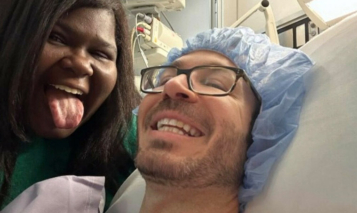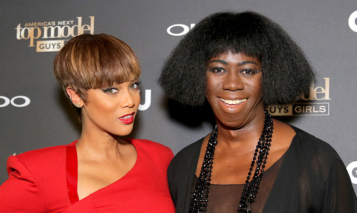
Michelle Obama spoke at a rally in Michigan on Saturday (October 26) to support Presidential candidate Kamala Harris. The former first lady was nearly in tears as she opened up about the “debilitating” effects of menopause.
READ ALSO: Study Reveals Menopause Treatments That Work – and the Ones That Don’t
Obama, 60, described suffering with “excruciating cramps and days of nausea.”
“Every month, far too many of us experience excruciating cramps and days of nausea. As we struggle through menopause, crippling hot flashes, and depression, too many women my age are unaware of what’s happening to our bodies,” she said.

Mrs. Obama also addressed the men in the crowd and urged them to vote for Harris who is pro-abortion.
She said men should support women’s health and she warned that women’s lives “would be in danger” if Donald Trump returns to the White House.
“See, fellas, most of us women we suck up our pain and we deal with it alone. We don’t share our experiences with anyone, not partners, friends, or even doctors.”
“A woman’s body is a complicated business… it brings life and that is beautiful but even when we are not bearing children there is so much that can go wrong at any moment,” she continued.
Obama commented on the mysterious rise in turbo cancers affecting millions of Americans in recent years.
“Every woman here knows what I am talking about: an unexpected lump, an abnormal pap smear, a mammogram, an infection or blockage which all can be early signs of life-threatening cancers,” she said.
“In those terrifying moments, which will happen to the vast majority of women in the country, it feels like the floor falls out from under us.”
Mrs. Obama’s experience is different from women who don’t experience “excruciating cramps” or “days of nausea” during menopause. In fact, many women on hormone replacement therapy (HRT) are symptom-free.
Menopause is known as “the change” because it marks the end of a woman’s reproductive years. Menopause typically occurs between 45 to 55 as levels of female hormones (estrogen and progesterone) decrease. Perimenopause sometimes begins in a woman’s 30s. Menopause lasts 4-8 years or longer.
Signs and symptoms of menopause include hot flashes, brain fog, night sweats, mood swings, thinning hair, weight gain, low libido, depression, and vaginal dryness.
Talk to your doctor about hormones (estrogen and progesterone) that can relieve the signs and symptoms of menopause.
Other treatment options are available for women who diagnosed with cancer or women with a family history of cancer.





